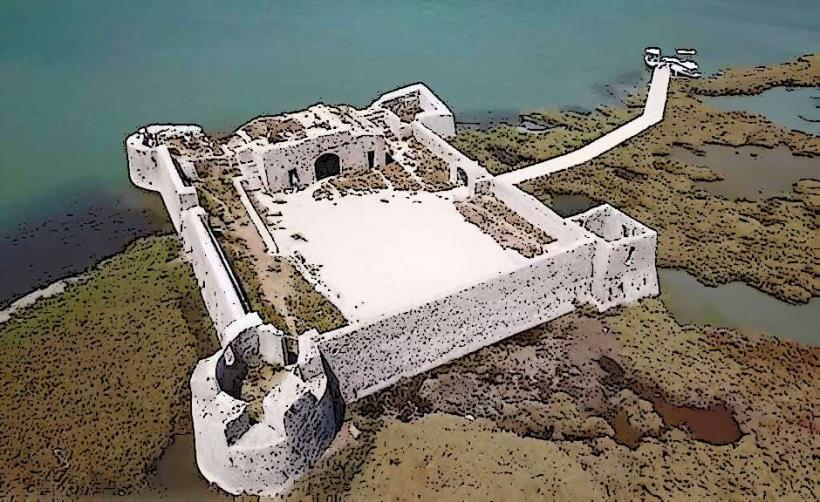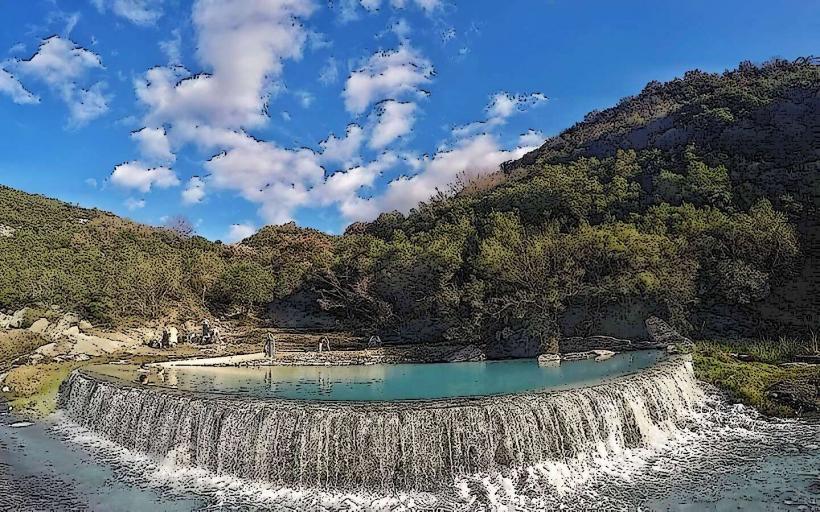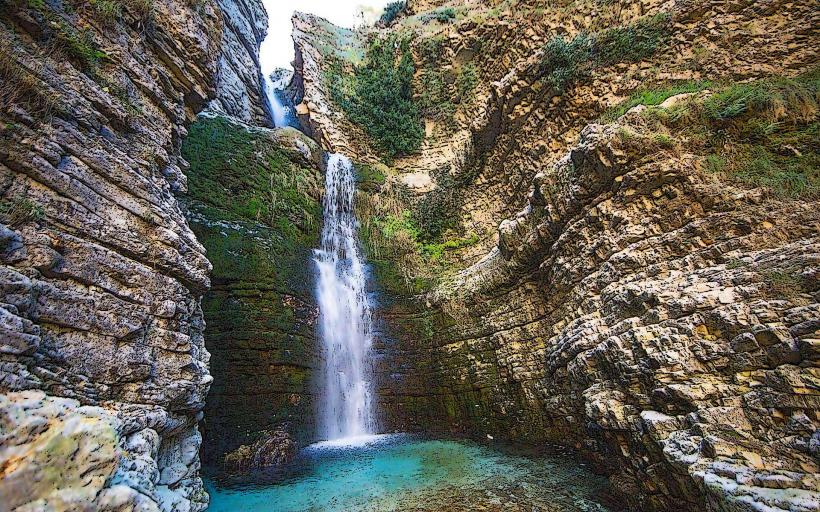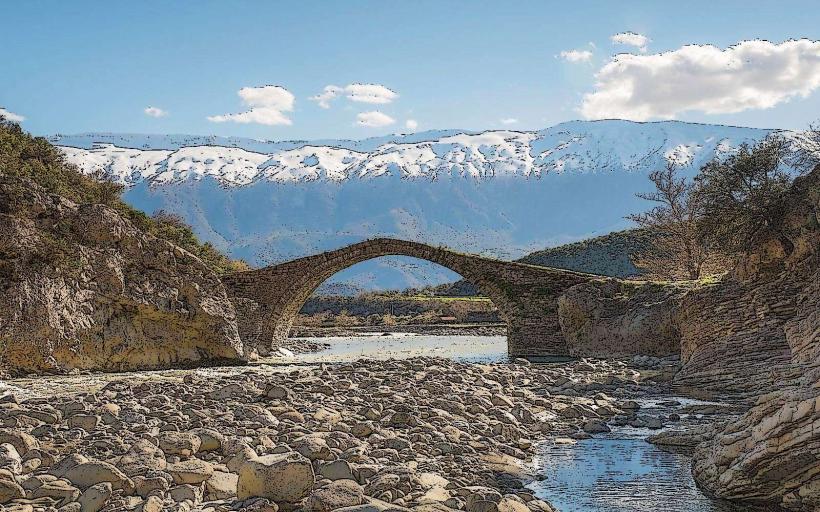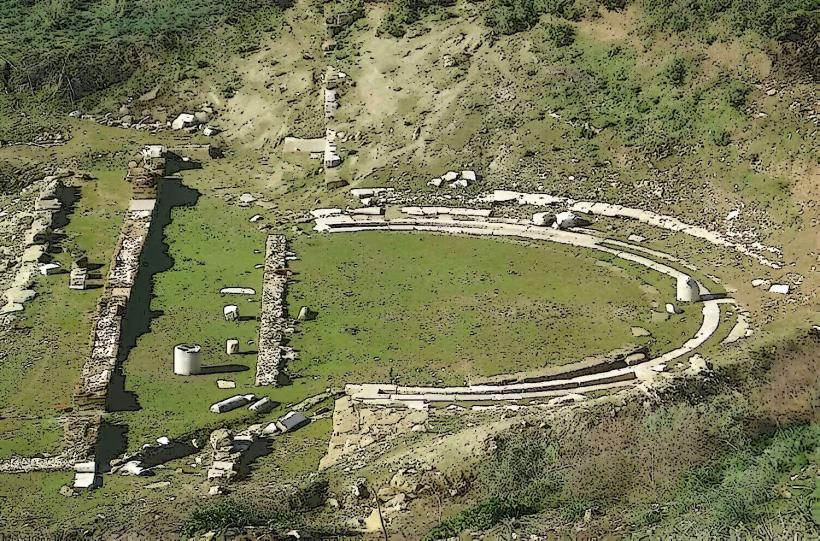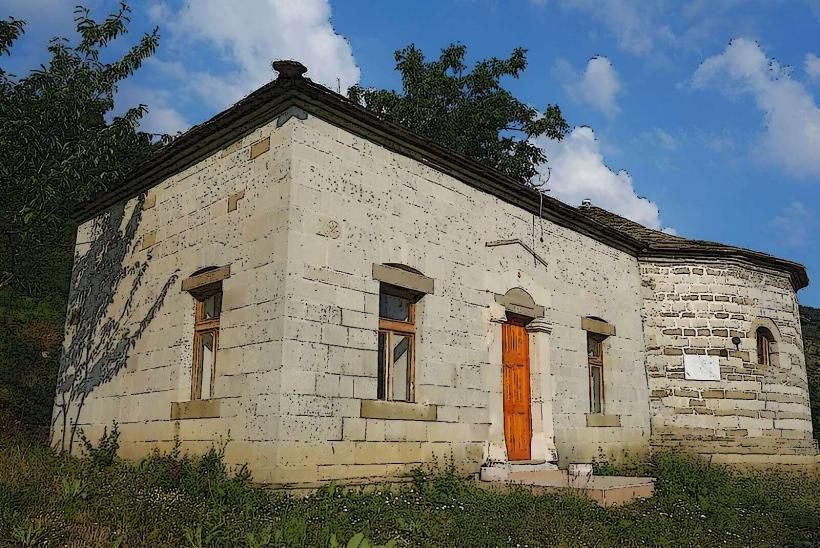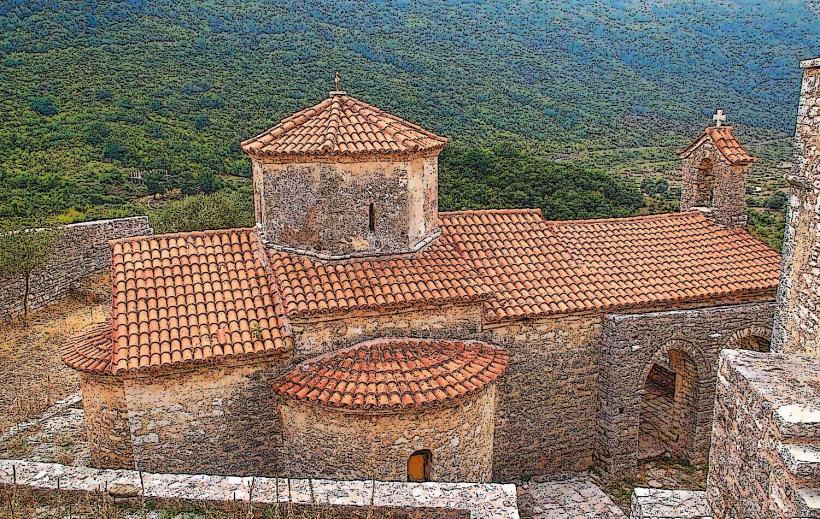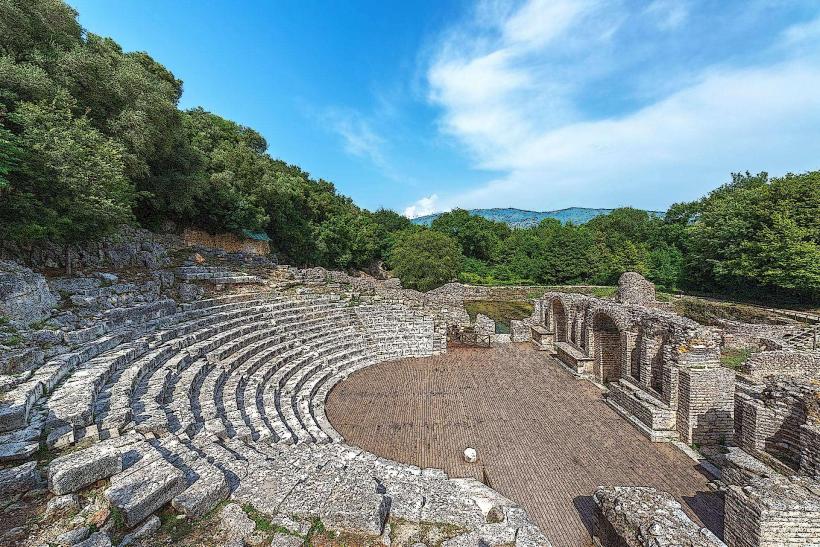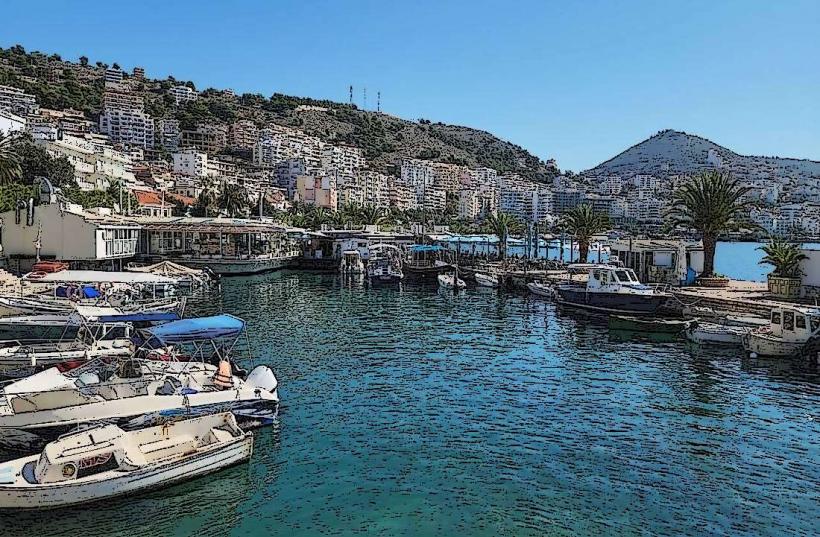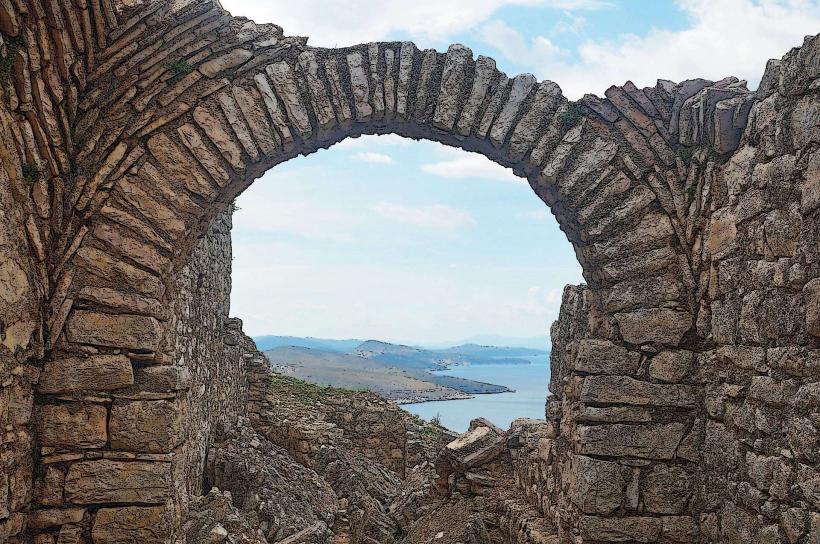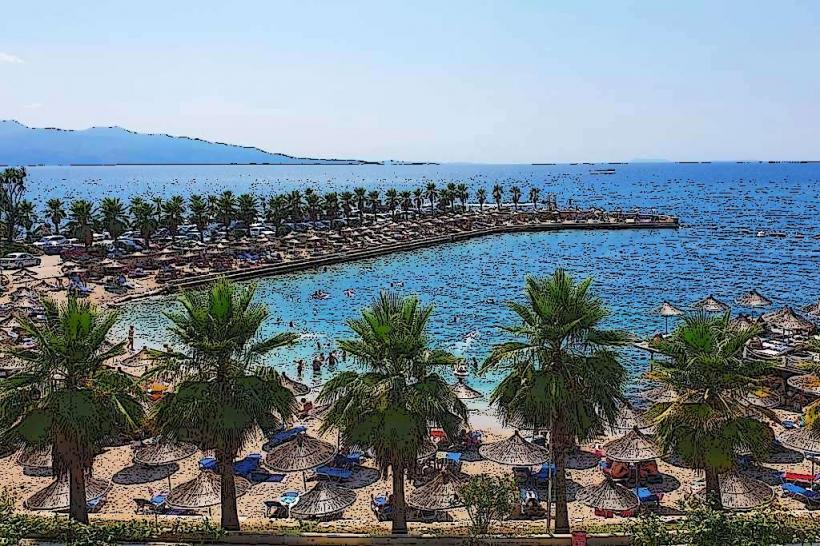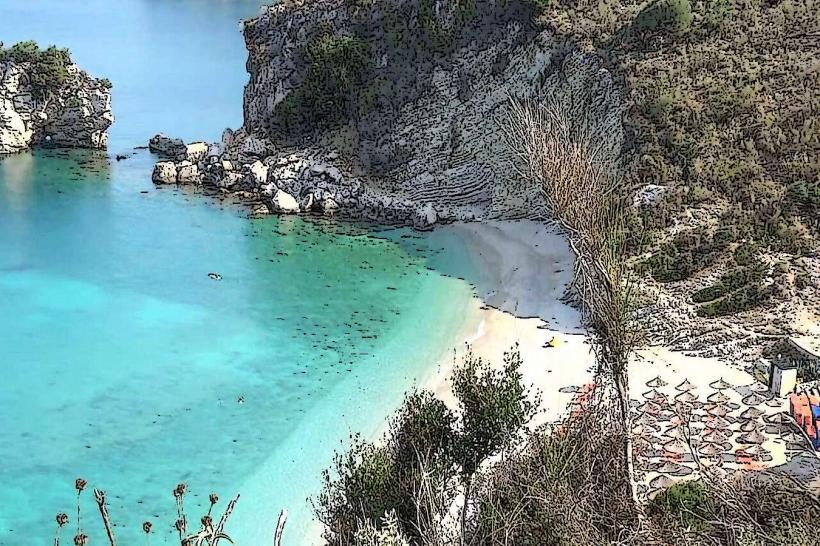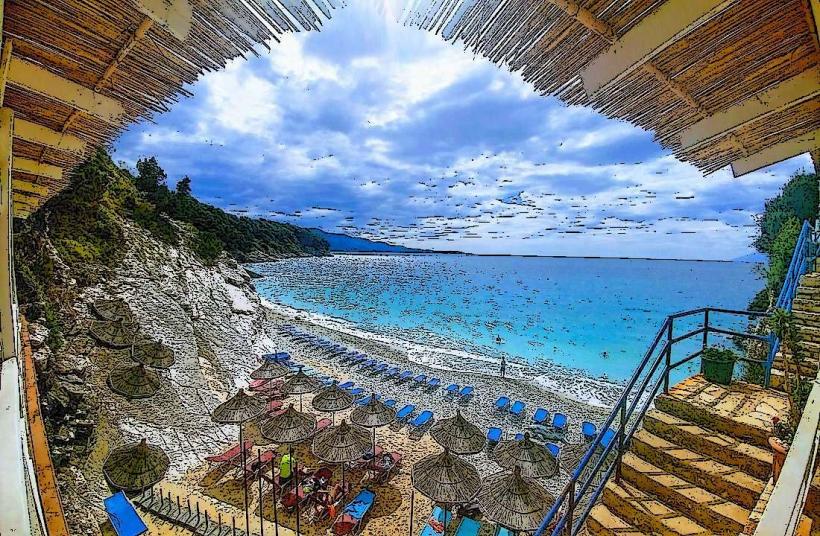Information
Landmark: Synagogue ComplexCity: Sarande
Country: Albania
Continent: Europe
Synagogue Complex, Sarande, Albania, Europe
The Synagogue Complex consists of the archaeological remains of a 5th-century Jewish religious center located in the heart of Sarandë, Albania. It is situated in the central urban area, adjacent to the city's main administrative buildings and the waterfront.
Visual Characteristics
The complex features low-lying limestone foundations, stone walls, and several preserved mosaic floors. The most prominent visual elements are the remains of a basilica-style structure with distinct floor mosaics depicting a menorah, a shofar (ram's horn), and an etrog (citron). The site is largely open-air, surrounded by modern apartment buildings and steel fencing for preservation.
Location & Access Logistics
The site is located on Rruga Vangjel Pando, approximately 100 meters from the Sarandë City Hall. It is centrally positioned within the pedestrian zone, making it accessible on foot from any point in the downtown area. While there is no dedicated parking lot, several paid parking zones exist along the nearby promenade. Public buses from Ksamil and Butrint stop at the central terminal, a 5-minute walk away.
Historical & Ecological Origin
The synagogue was built in the 5th century AD by a wealthy Jewish community that resided in the ancient city of Onchesmus. It originally functioned as a community center and house of worship before being converted into a Christian basilica in the 6th century. The site was discovered during excavation work in the 1980s and subsequently investigated by a joint Albanian-Israeli archaeological team in 2003.
Key Highlights & Activities
Visitors can observe the structural transitions between the original synagogue and the later church conversion. Observation of the mosaic symbols-specifically the seven-branched candelabrum-is the primary focus. Information panels in Albanian and English provide historical context for the various excavation layers. The site is viewed from perimeter walkways.
Infrastructure & Amenities
The complex is an archaeological park with minimal indoor facilities. Restrooms and food vendors are not on-site but are available in the immediate surrounding commercial buildings. The site is fully exposed to the sun with no shade structures over the ruins. 5G and 4G cellular signals are excellent due to its central urban location.
Best Time to Visit
The site is best visited during morning hours (08:00–10:00) to avoid mid-day heat and to utilize softer natural light for viewing the mosaic details. It is accessible year-round. There are no official opening hours as the ruins are visible from the public sidewalk even when the interior gates are closed.
Facts & Legends
This complex is significant for being the first identified ancient synagogue in Albania, proving the existence of a substantial Jewish presence on the Ionian coast during late antiquity. Archaeological evidence suggests the building was destroyed by an earthquake or a Slavic raid in the late 6th century, after which it was never rebuilt.
Nearby Landmarks
Sarandë Museum of Archaeology (0.2km West)
Sarandë Promenade (0.1km South)
Resurrection of Christ Orthodox Cathedral (0.3km North)
Lëkurësi Castle (2.1km Southeast)
Port of Sarandë (0.5km West)

